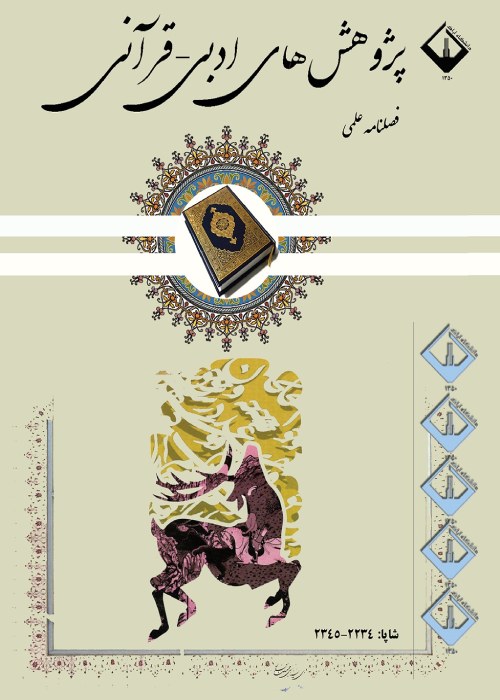An Analytical Approach to Reading Divine Ayahs and Understanding Qur’anic Discourse in Light of Analyzing Izutsu and Allameh Tabatabai’s Linguistic Approaches
Paying attention to the linguistic level of Qur’anic discourse, and accurate explanation of the ayahs are among the essential topics in the field of Qur’anic studies. In contemporary linguistics, recognizing the relationship between words and phrases, as well as evaluating coherence and looking at the whole of what is the result of these relationships, is considered an important principle in understanding the discourse of the text. Therefore, the literary analysis of the Qur’an as a coherent text will not be outside this linguistic principle because the Qur’an-centeredness and the semantics based on the unity of the Qur’anic semantic network play effective parts in discovering the divine meanings and aims of the ayahs of the Qur’an. Therefore, analyzing the linguistic approaches used by the Qur’anic scholars in explaining Qur’anic ayahs is an undeniable necessity. And since the common concern of Allama Tabatabai and Izutsu in explaining and the studying the semantics of Qur’anic words is understanding the meaning and discovering the meaning from within the text, this descriptive-analytical research intends to analyze the commonalities and convergence of literary and linguistic approaches of Izutsu and Allameh in reading divine ayahs and understanding Qur’anic discourse. The results of the present research indicate the emphasis of Allameh Tabatabai and Izutsu on the systematic nature of the Qur’anic language and the explanation of the semantic independence of the Qur’an and the semantic connection between the ayahs so that they consider the understanding of Qur’anic ayahs to be dependent on the text of the Qur’an and the evidence within the text, and believe in the central effect of the monotheistic paradigm in understanding Qur’anic discourse and the interaction of the meanings of words within the text. However, the quantity and quality of using these common principles are different for them. In the field of literature and linguistics, while emphasizing the rhetorical miracle of the Qur’an, they use the internal context of speech and the intertextual relations in discovering the meanings intended by Allah, and implicitly prove the linguistic coherence and worldview of the Qur’an.
- حق عضویت دریافتی صرف حمایت از نشریات عضو و نگهداری، تکمیل و توسعه مگیران میشود.
- پرداخت حق اشتراک و دانلود مقالات اجازه بازنشر آن در سایر رسانههای چاپی و دیجیتال را به کاربر نمیدهد.


